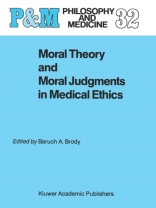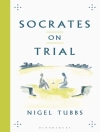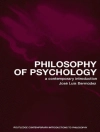principles. A second solution to this problem is to develop a scale for weighing the significance of the conflicting principles in a given case and for concluding which action should be adopted because it is supported by the weightier considerations in that case. Such a solution seems more realistic than the lexical ordering approach, but the development of such a scale is a problematic task. Still other, more complex solutions are possible. Which is the best solution to this problem of conflicting principles of bioethics? We need a moral theory to answer that question. This is the first reason for concluding that the principles of bioethics are not the true foundations of justified judgment in bioethics. What is the problem of the unclear scope and implications of the principles of bioethics and how can an appeal to moral theory help deal with that problem? The scope of a bioethical principle is the range of cases in which it applies. The implications of a bioethical principle are the conclusions to be derived from that principle in those cases in which it applies. It is clear from a review of the discussions in bioethics that there are major unclarities about the scope and implications of each of the principles. Consider, for example, the principle of autonomy.
B.A. Brody
Moral Theory and Moral Judgments in Medical Ethics [PDF ebook]
Moral Theory and Moral Judgments in Medical Ethics [PDF ebook]
购买此电子书可免费获赠一本!
语言 英语 ● 格式 PDF ● ISBN 9789400927155 ● 编辑 B.A. Brody ● 出版者 Springer Netherlands ● 发布时间 2012 ● 下载 3 时 ● 货币 EUR ● ID 4703526 ● 复制保护 Adobe DRM
需要具备DRM功能的电子书阅读器












